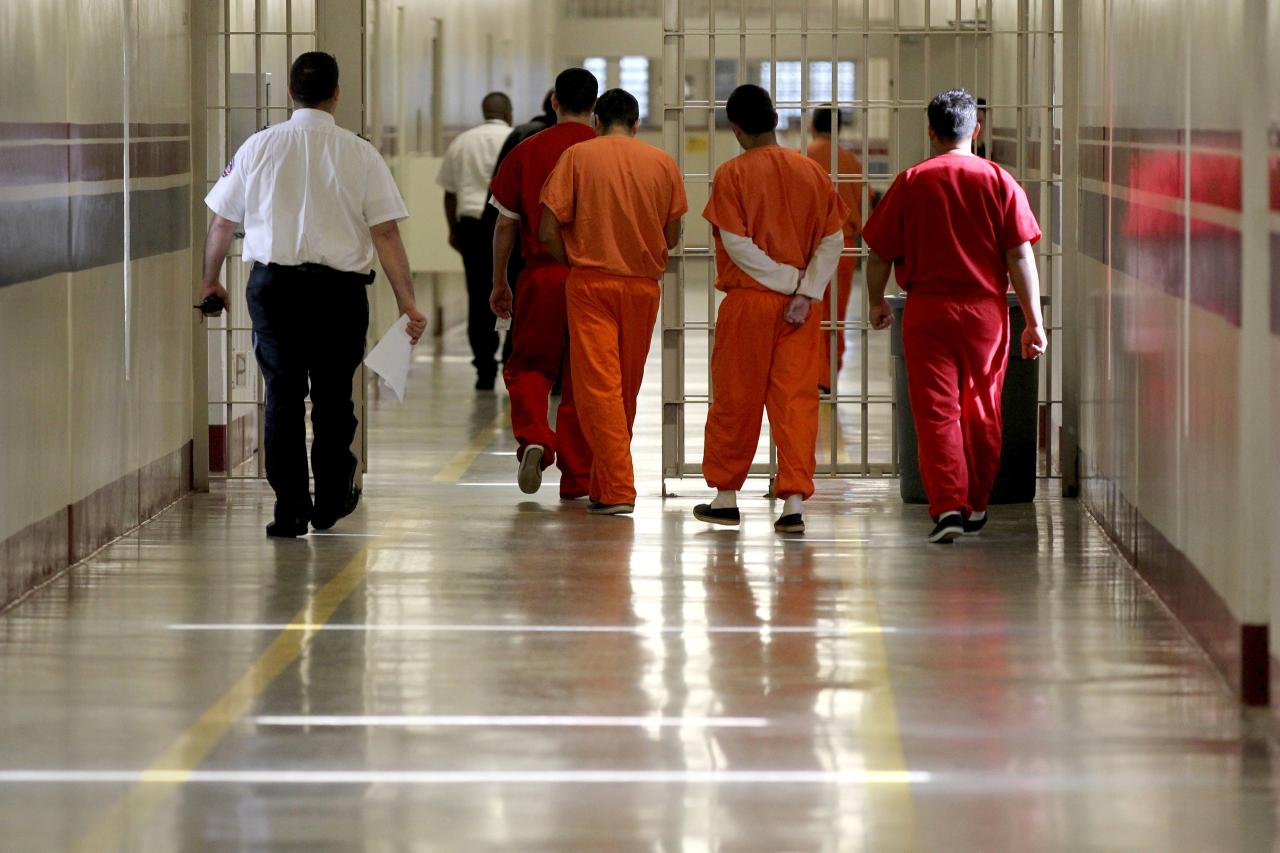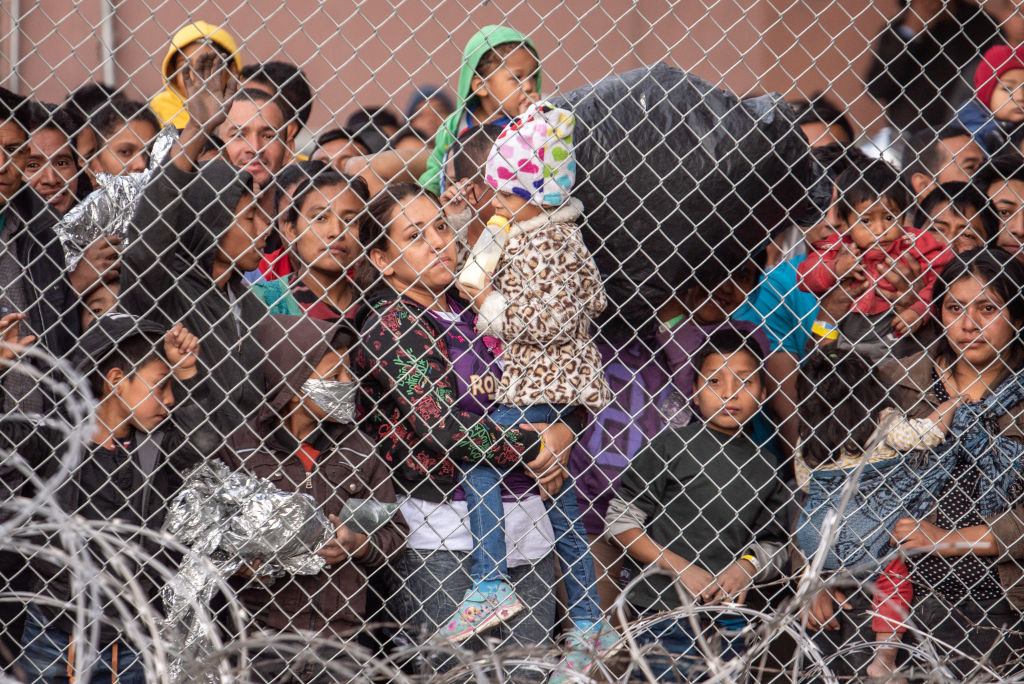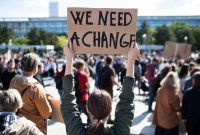Immigration detention centers have emerged as a contentious topic, sparking debates on human rights, legal frameworks, and the well-being of individuals caught in the labyrinth of immigration policies. These facilities, intended to temporarily house individuals awaiting immigration proceedings, have often been marred by allegations of inhumane conditions, due process violations, and the agonizing separation of families.
As we delve into the complexities surrounding immigration detention centers, it is imperative to examine the physical and psychological conditions within these facilities, the legal framework governing their operation, and the human rights concerns they raise. Moreover, we will explore alternative forms of detention, the role of advocacy groups in challenging these issues, and potential recommendations for reform that could pave the way for a more humane and just immigration system.
Conditions in Immigration Detention Centers
Immigration detention centers in many countries are often overcrowded, understaffed, and lack basic necessities. Detainees are often held in cramped quarters with inadequate access to healthcare, food, and other essential services. These conditions can have a devastating impact on the mental and physical health of detainees.
Overcrowding
Overcrowding is a major problem in many immigration detention centers. In some facilities, detainees are forced to sleep on the floor or in overcrowded cells with little ventilation. This can lead to a number of health problems, including respiratory infections, skin infections, and mental health issues.
Inadequate Healthcare
Detainees in immigration detention centers often have limited access to healthcare. In some cases, detainees are denied medical care altogether. This can lead to serious health problems, including untreated illnesses and injuries.
Lack of Basic Necessities
Detainees in immigration detention centers are often denied basic necessities, such as food, water, and clothing. This can lead to malnutrition, dehydration, and other health problems.The conditions in immigration detention centers can have a devastating impact on the mental and physical health of detainees.
Detainees often experience anxiety, depression, and other mental health problems. They may also suffer from physical health problems, such as respiratory infections, skin infections, and malnutrition.
Legal Issues and Human Rights Concerns
Immigration detention in the United States is a complex and controversial issue with significant legal and human rights implications. This section will explore the legal framework governing immigration detention and discuss the human rights concerns raised by this practice.
Legal Framework
The legal framework governing immigration detention in the United States is primarily based on federal statutes and regulations. The Immigration and Nationality Act (INA) provides the authority for the Department of Homeland Security (DHS) to detain individuals who are inadmissible or deportable under the law.
DHS has issued regulations that establish the procedures for detention, including the conditions of confinement and the rights of detainees.
Alternatives to Detention
Immigration detention centers have come under increasing scrutiny due to concerns about their negative impacts on detainees. As a result, there has been growing interest in exploring alternatives to detention that can help to reduce these negative impacts while still ensuring public safety.
Community-Based Programs
Community-based programs provide a range of services and support to immigrants who are released from detention, including housing, food, medical care, and legal assistance. These programs can help to reduce the risk of homelessness, hunger, and other hardships that can lead to recidivism.
They can also help to connect immigrants with the resources they need to successfully integrate into their communities.
- Advantages: Community-based programs are less expensive than detention, they can help to reduce the negative impacts of detention on detainees, and they can help to promote successful integration into the community.
- Disadvantages: Community-based programs may not be appropriate for all immigrants, and they may not be able to ensure public safety in all cases.
Electronic Monitoring
Electronic monitoring (EM) is a technology that can be used to track the location of immigrants who are released from detention. EM can help to ensure that immigrants comply with the terms of their release, and it can also help to deter them from absconding.
- Advantages: EM is less restrictive than detention, it is less expensive than detention, and it can help to ensure public safety.
- Disadvantages: EM can be intrusive, it can be expensive to implement, and it may not be effective in all cases.
Alternatives to detention can help to reduce the negative impacts of detention while still ensuring public safety. However, it is important to carefully consider the advantages and disadvantages of each alternative before making a decision about whether or not to use it.
Advocacy for Immigration Detainees

Advocacy for immigration detainees plays a crucial role in improving their conditions and upholding their rights. Several key organizations and groups actively work to address the challenges faced by these individuals.
These organizations employ a range of strategies to advocate for immigration detainees, including litigation, policy advocacy, and public awareness campaigns. Litigation involves filing lawsuits to challenge unlawful practices or conditions within detention facilities. Policy advocacy aims to influence legislation and regulations to improve the treatment of detainees.
Public awareness campaigns raise attention to the plight of detainees and mobilize support for their rights.
Key Advocacy Groups
- American Civil Liberties Union (ACLU): The ACLU has a long history of fighting for the rights of immigrants and detainees, challenging detention policies and practices that violate constitutional rights.
- National Immigration Law Center (NILC): NILC provides legal representation and advocates for immigrants and refugees, including those in detention, seeking fair and humane treatment.
- American Immigration Council (AIC): AIC conducts research and advocacy to promote fair and just immigration policies, including the humane treatment of detainees.
- Immigrant Legal Resource Center (ILRC): ILRC offers legal assistance, training, and policy advocacy to protect the rights of immigrants, including those in detention.
- Human Rights First: Human Rights First investigates and documents human rights violations against immigrants, including those in detention, and advocates for their protection.
These organizations collaborate and form coalitions to amplify their voices and increase their impact. Their advocacy efforts have led to policy changes, such as improved access to legal representation for detainees and the establishment of standards for detention facilities.
Impact on Policy and Public Opinion
Advocacy for immigration detainees has significantly influenced policy changes and public opinion. Lawsuits filed by advocacy groups have resulted in court rulings that have improved conditions in detention facilities and limited the use of prolonged detention. Policy advocacy campaigns have led to the passage of legislation that provides greater protections for detainees and limits the use of family detention.
Public awareness campaigns have raised awareness of the challenges faced by immigration detainees and shifted public opinion in their favor. This has led to increased support for policies that promote humane treatment and alternatives to detention.
Recommendations for Reform

Reforming immigration detention practices requires addressing the systemic issues that have led to inhumane conditions, legal violations, and the unnecessary detention of immigrants. Key recommendations for reform include improving conditions, addressing legal concerns, and promoting alternatives to detention.
Improving Conditions
Conditions in immigration detention centers should meet basic human rights standards. Recommendations include:
- Enhancing medical care and mental health services
- Providing adequate food, water, and sanitation
- Improving ventilation and temperature control
- Reducing overcrowding
Addressing Legal Concerns
Detention should be used as a last resort and should comply with due process rights. Recommendations include:
- Limiting detention to individuals who pose a flight risk or safety threat
- Providing fair and timely hearings
- Allowing access to legal counsel
- Ending the practice of indefinite detention
Promoting Alternatives to Detention
Alternatives to detention, such as community-based programs, can provide a more humane and cost-effective way to manage immigration cases. Recommendations include:
- Expanding the use of case management, ankle monitors, and other forms of supervision
- Creating community-based housing programs
- Providing legal and social services to immigrants
- Investing in root causes of migration, such as poverty and violence
Implementing these reforms would significantly improve the lives of immigration detainees, reduce the burden on the immigration system, and align with the United States’ commitment to human rights.
Final Summary
The topic of immigration detention centers is a multifaceted one, requiring a nuanced understanding of the legal, ethical, and humanitarian dimensions involved. As we conclude our discussion, it is evident that these facilities are far from perfect, with significant concerns regarding conditions, legal protections, and the impact on detainees’ well-being.
While alternatives to detention offer potential solutions, they require careful consideration and implementation to ensure both public safety and the rights of individuals.
Advocacy groups play a crucial role in holding authorities accountable, challenging unjust practices, and pushing for reforms. Their efforts have undoubtedly influenced policy changes and public opinion, demonstrating the power of collective action in shaping a more just and humane immigration system.
As we move forward, it is imperative that we continue to engage in thoughtful dialogue, advocate for the rights of detainees, and work towards creating a system that upholds human dignity and the rule of law.
Common Queries
What are the primary concerns regarding conditions in immigration detention centers?
Overcrowding, inadequate healthcare, lack of basic necessities, and poor sanitation are among the major concerns raised about the physical conditions in detention centers. These conditions can have detrimental effects on the mental and physical health of detainees.
What legal issues and human rights concerns are associated with immigration detention?
Immigration detention raises concerns about due process violations, including prolonged detention without a bond hearing, limited access to legal counsel, and the separation of families. These practices have been challenged by advocacy groups on the grounds that they violate fundamental human rights.
What are the key advocacy strategies employed by groups working to improve conditions for immigration detainees?
Advocacy groups use various strategies to challenge the issues surrounding immigration detention, including litigation, policy advocacy, and public awareness campaigns. They work to expose inhumane conditions, advocate for legal reforms, and mobilize public support for changes in detention practices.
What are the potential benefits of implementing alternatives to immigration detention?
Alternatives to detention, such as community-based programs and electronic monitoring, can reduce the negative impacts of detention on individuals and families. They allow detainees to remain in their communities, maintain employment, and access essential services while awaiting their immigration proceedings.
What are some key recommendations for reforming immigration detention practices?
Recommendations for reforming immigration detention practices include improving conditions in detention centers, addressing legal concerns, promoting alternatives to detention, and ensuring due process protections for detainees. These reforms aim to create a more humane and just immigration system that respects the rights of individuals.



